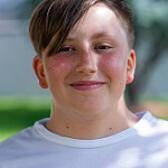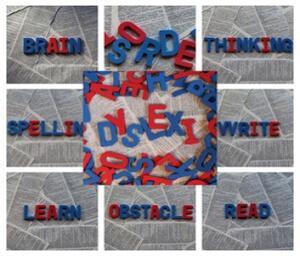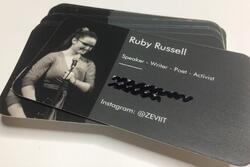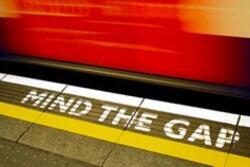Dyslexia, the World, and Me
When I was five years old, I was diagnosed with dyslexia. My parents were told that I’d need extensive therapy in order to read and write. At five, I never thought I would read. I threw books on the ground and refused to even try. I would yell, “I don’t need to read! I hate reading!” over and over again. I was clearly very stubborn and frustrated. I knew I was capable of understanding and learning, but it seemed like few others understood that. I didn’t believe in myself because it didn’t seem like anyone else did either.
Even with the diagnosis, however, my parents never gave up. My mom has admitted to me that she feared that I would never read, but she still tried. They found a program that worked with kids with learning differences, and I started going every day before school. It was hard, and there were times when I hated it. I spent hours every day there during the summer after first grade. I remember the day that I “graduated” from the program. I remember being given a book and saying, “I can’t read this,” but they responded, “Yes you can, just try.” These people had more faith in me than I did in myself.
I never thought that I would write at all, let alone create multiple blog posts. Today, I love to read and write, but I still struggle with math, grammar, and spelling, among other things. I’ve noticed that if I tell people I’m dyslexic, they either don’t believe me at all, or minimize it because I love to read and am often seen with a book in my hand. (It can’t really be that bad, right?) What people don’t see is that I work twice as hard for half as much. For example, my final written work is often very good, but people don’t see the extra time and struggle that I put into my writing or the extra editing that is needed to fix my spelling and grammatical mistakes.
Although dyslexia is relatively common (1 in 10 people experience it), it’s largely misunderstood. Some kids are thought of as lazy or just plain stupid because their parents and teachers don’t understand that dyslexia isn’t just a learning disability, but a difference in how the brain is wired. There are also strengths that come from having dyslexia. I happen to be good at games where you have to guess the number of something in a jar. I attribute this to my dyslexia; it's what I like to call “a dyslexic advantage.” This idea that dyslexia can be a strength is generally accepted and favored in the dyslexia community, and there are even a few books on the topic, including one called “Dyslexic Advantage.”
I’ve been accused of not trying or not caring about school or a class. People thought I was just a kid with bad grades—not a kid trying to learn, but one who couldn’t understand the way things were being taught. I attribute this judgement to the lack of education about learning differences, and people’s inability to see past their preconceived notions. I was able to clearly express myself when speaking, so if it didn't translate on paper, to them it was because I wasn’t trying. The same thing happened with math. If I was doing well in my other classes but not in math, teachers thought I just didn’t care about math class. Even worse is when a math teacher doesn’t believe that dyslexia affects mathematical abilities because it’s thought of as a reading disability. This narrow view of such a complex neurological change makes it hard for students like me to succeed.
When I encounter this kind of ignorance, I either try to explain what they don’t understand about me, or I ignore it and just keep working hard. I may not be able to change their minds, but I certainly don’t have to listen to their opinions.
This issue of teachers not understanding learning differences is a systemic one. I’ve heard that in teacher education there’s very little focus on learning differences. I’m sure that this isn’t true of all teaching programs, but regardless, there needs to be more emphasis on teaching kids with learning differences. Thirteen percent of all public-school children in the U.S. receive some kind of special education services, and that doesn’t include undiagnosed kids and private school or homeschooled children. There’s a saying: “When we know better, we do better.” We can’t expect teachers to do better if they’re not educated about learning differences in the first place.
I continue to read whenever possible, and I know that when I pick up a book, or write an essay, or write a blog post like this one, I’m proving myself and everyone else who doubted me wrong. I might not always succeed, but I won’t give up, and I won’t let other people bring me down.
This piece was written as part of JWA’s Rising Voices Fellowship.








This is wonderful!